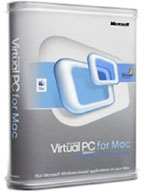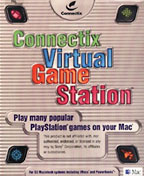Emulator (n) - hardware or software that
permits programs written for one computer to be run on another computer
(merriam-webster.com)
An emulator is a very useful tool, and odds are that you have used
one at one point or another, either for the purpose of entertainment or
for the purpose of productivity.
 Emulators are often available free via download, are sometimes
built into the operating system, and in rare cases are sold
commercially - and offer excellent compatibility, such as Virtual PC (which
requires a full licensed version of Windows to work). Emulators give
you some serious options for changing how you use your computer.
Emulators are often available free via download, are sometimes
built into the operating system, and in rare cases are sold
commercially - and offer excellent compatibility, such as Virtual PC (which
requires a full licensed version of Windows to work). Emulators give
you some serious options for changing how you use your computer.
There are legal and moral obligations involved with the use of some
of these emulators, so be careful what you choose to emulate, unless
you already own a copy of that particular piece of software and/or
hardware.
Virtual PC for Macintosh is now discontinued, but it is still the
most cost effective alternative to buying an Intel machine for PowerPC
users.
Who Needs an Emulator?
Many people need to and want to use emulators. Anyone using a
PowerPC G3, G4, or G5 Macintosh that may occasionally need to use an
application or access a file that was built specifically for Windows
may have to resort to emulating Windows via Virtual PC 7. Users
also may want to emulate hardware to "time shift/space shift"
hardware/software that they have already paid good money for.
Also, developers emulate various pieces of hardware while testing
software in order to avoid any risk to vital data while having the
ability to quickly analyze the software's performance. The iPhone
environment can be emulated for those who develop for it.
Benefits of Emulation
A great benefit to emulation is accessing legacy files and legacy
applications. There are times when newer hardware and software is
introduced and support for older versions is dropped. When newer
hardware no longer supports the files that were recognized by an older
operating system, emulation provides a distinct alternative.
For instance, Macintel users have Rosetta built into Intel versions
of Mac OS X, which emulates the PowerPC architecture and allows
applications and files compiled specifically for PowerPC Macs to still
work under OS X. Without Rosetta (or another emulator), these
applications and files would not work on Intel Machines.
The same can be said for those who access older applications on a
PowerPC Mac that were compiled prior to Mac OS X. The "Classic
Environment" is a built in Mac OS 9 emulator that runs within Mac
OS X 10.4.11 and earlier on PowerPC Macs. This proves helpful in
versions of OS X that support Classic Mode and allows those older
programs and applications to still work on a Mac that does not boot
natively into a version of OS 9. This feature was eliminated from
OS X with the release of Mac OS X 10.5 "Leopard" and has
created a compelling reason to partition your hard drive with copies of
"Tiger" (OS X 10.4) and "Leopard" in case you still need to use the
Classic Environment for anything.
Another benefit of emulation is time and space shifting. The idea of
time and space shifting is simply put as changing the time and place
that you can typically utilize a product that you have purchased. The
notion of is especially useful to gamers, who may want to space shift
the use of a non-portable gaming device into a portable form that will
allow you to play it on the go.
Gaming on a Mac Through Emulation
Two good examples of fantastic emulators for the Mac that allow you
to space shift your entertainment would be MAME/MacMAME (a Multiple Arcade Machine
Emulator) and PCSX, a Sony
PlayStation emulator. Obviously, you can't haul your arcade cabinet
around with you, and maybe you own an older Sony PlayStation unit but
would like to play the games you already own when you're on the go. An
emulator is not a bad choice in either circumstance.
Both MacMAME and PCSX provide a great solution for this problem, and
the software is free (donation to their developers is truly
appreciated). MacMAME allows you to play your old arcade games on the
go, using ROM files that you must obtain to substitute for the hulking
arcade cabinet you own, while PCSX allows you to play the Sony
PlayStation discs you already own right on your Mac (not all games are
compatible though).
Sony PlayStation Emulator for Older Macintosh Hardware
 An honorable mention goes out to the Sony PlayStation emulator,
Virtual
Game Station (VGS), developed by Connectix (the publisher of older
versions of Virtual PC). Virtual Game Station was commercially sold for
a short time in 1999 - until Sony unsuccessfully sued Connectix,
bleeding the company dry in legal fees. Although Connectix won, they
had to recover their losses to survive, so Sony bought out the rights
to VGS from Connectix and quickly pulled the plug - truly a bitter pill
to swallow.
An honorable mention goes out to the Sony PlayStation emulator,
Virtual
Game Station (VGS), developed by Connectix (the publisher of older
versions of Virtual PC). Virtual Game Station was commercially sold for
a short time in 1999 - until Sony unsuccessfully sued Connectix,
bleeding the company dry in legal fees. Although Connectix won, they
had to recover their losses to survive, so Sony bought out the rights
to VGS from Connectix and quickly pulled the plug - truly a bitter pill
to swallow.
VGS only works in Mac OS 8.1 through 9.2.2. It will not run in the
Classic Environment of Mac OS X. It will, however, run compatible
games at full speed on a 233 MHz iMac or above. Pismo owners rejoice - yet
another reason to fire up OS 9 (this should even run fine on an
original clamshell
iBook)! If you don't have VGS and have an older iBook G3 or
PowerBook that can boot the Classic Mac OS, it's probably worth trying!
VGS and updates can still be found (1.4.1 was the last update). The
original program can usually be found on
eBay and Amazon.com.
Compatibility is also quite decent since this was commercially sold.
A compatibility
list can be found on GeoCities.
Emulate Responsibly
Be careful! Downloading and/or using emulators is
legal, but downloading applications, hardware configurations (BIOS),
and game files (ROMs) that you do not own is illegal and could
get you in serious trouble. Unless you own that hardware/software, or
unless it is covered by the GPL (Gnu General Public License), or unless
it is no longer protected by copyright, do not download it!
Use emulators at your own risk. As with any software, the
manufacturer and/or creator of an emulator you use is not responsible
for compromised confidential data, system performance loss, or loss of
data. Always back up your important files and safeguard your
confidential data with passwords and encryption.
Summary
As long as you play by the rules, emulation can be a good experience
and gives you, as a consumer, the right to gain additional use out of
something that you already own - or it may allow you to gain additional
functionality out of a device you own. Without emulation, the world of
computing and the world of gaming would truly be a more difficult
place. 
Dan Bashur lives in central Ohio with his wife and children. He uses various PowerPC G3 and G4 Macs running Tiger and Leopard. Besides finding new uses for Macs and other tech, Dan enjoys writing (fantasy novel series in the works), is an avid gamer, and a member of Sony's Gamer Advisor Panel. You can read more of Dan Bashur's work on ProjectGamers.com, where he contributes regular articles about the PSP, classic gaming, and ways you can use Sony gaming hardware with your Mac.

 Emulators are often available free via download, are sometimes
built into the operating system, and in rare cases are sold
commercially - and offer excellent compatibility, such as
Emulators are often available free via download, are sometimes
built into the operating system, and in rare cases are sold
commercially - and offer excellent compatibility, such as  An honorable mention goes out to the Sony PlayStation emulator,
An honorable mention goes out to the Sony PlayStation emulator,

